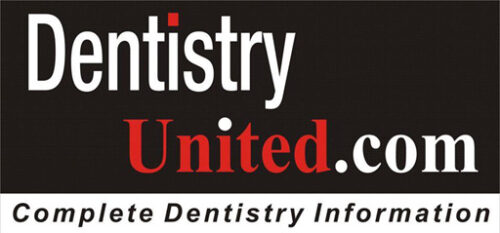The Children in the Chair
By the light of a fog-wrapped November evening in Bangalore
In the hushed stillness of a foggy November evening, when the city lay cloaked in a ghost-grey shawl and the scent of burnt leaves curled through the air, Dr. Hajeera sat at her desk. Her journals lay scattered like old maps, the margins scribbled with thoughts half-formed. A cooling cup of cardamom tea sat forgotten beside a yellowing article on pediatric sedation. It was the kind of hour where the world whispers, not speaks.
The wall clock struck eleven—solemn and slow—when the phone rang, sudden and sharp like a snapped wire.
She picked it up with the calm of someone who’s heard a hundred such calls before, though never quite like this one.
“This is Dr. Hajeera.”
On the other end: a whisper of a voice, slightly slurred and aching with worry. “Hajeera… it’s me. Dr. Azra. Please don’t hang up.”
Dr. Azra. Her cousin. Young, bright, and barely a year out of dental school. A firecracker of ambition with hands still unsure in the storm. She was supposed to be fine. She was supposed to be flying. But now her voice trembled like she’d lost control of the rudder.
“What’s happened, Azra?” Hajeera asked, not unkindly.
A long silence—then the sound of a truth too heavy to carry.
“I opened a clinic. Nothing fancy. Just a little one-room setup in Hebbal. But the kids, Hajeera… the kids. I don’t know how to handle them. Four-year-olds, five-year-olds—they scream, they squirm, they cry like I’m some kind of monster. I tried being strict today and… I think I scared one. I feel like I failed.”
Dr. Hajeera closed her eyes, picturing the scene. A tiny dental chair in a cramped room. Cartoon stickers peeling off the walls. The stale scent of antiseptic and panic. Azra, probably still in her scrubs, hands trembling around a pediatric mouth mirror. It wasn’t just about clinical skills. This was about presence. Poise. The psychology of trust.
She sat back and took a breath. “Azra, you don’t manage children with authority. You guide them with empathy. Pediatric dentistry isn’t about control—it’s choreography. A soft science hidden beneath the glint of steel instruments.”
She could hear Azra’s breath steadying.
“First, understand where they are. At four to six years old, they’re in the preoperational stage, according to Piaget. They live in a world of dragons and superheroes, not dental burs and pulpotomies. So don’t talk about ‘injections’ or ‘needles.’ Give your tools names. The air rotor becomes ‘Mr. Buzzy.’ The suction tip is ‘Miss Thirsty.’ Even the slow-speed handpiece? Call it ‘Tooth Tickler.’ Make it a story. You’re not prepping a cavity. You’re saving the princess trapped inside a sugar castle.”
Azra didn’t interrupt. She was listening. You could always tell when someone truly was. Hajeera continued.
“Before the child ever lies back, use the Tell–Show–Do method. It’s not optional. It’s gospel. Tell them what’s coming, show them the instrument on their hand or their finger—never straight to the mouth—and only then do the procedure. No surprises, no tricks. Children don’t forget betrayal, even small ones.”
She paused, letting that settle.
“Now, the parents. Sometimes they help. Often, they don’t. Set the ground rules with them before the appointment starts. No whispering things like ‘It won’t hurt’—because that plants the seed of fear. Instead, have them say, ‘Dr. Azra is going to count your teeth today and make them sparkle.’ And if they’re the anxious kind, ask them—gently—to wait outside.”
“And when the child’s in the chair?” Azra’s voice was smaller now, but grounded.
“Let them sit upright first. Talk to them. About cartoons, pets, dinosaurs—whatever they love. Then, slowly, lower the chair. Not all the way. Give them time. Let them feel like they’re the ones making the choice. A ceiling-mounted screen playing Peppa Pig? That’s gold. Your tone should be slow, soft, sing-song. Think lullaby. Not lecture.”
Azra gave a tired laugh—half-relieved, half-wrecked. “They still cry, Hajeera.”
“They will. And sometimes, they won’t stop. That’s when you give them a little power. Tell them, ‘If you want me to pause, raise your hand like a superhero.’ You’re giving them control in a world that’s too big and too shiny and smells too weird. Work in five-minute bursts. Praise them for every little win. ‘You did amazing! You’re braver than Iron Man!’ Mean it when you say it.”
“And if nothing works?” Azra whispered.
“Then you don’t force it,” Hajeera said simply. “Reschedule. Offer desensitization visits. Use a puppet, let them explore. Sometimes, it takes three visits to build trust. Sometimes, you refer to a pediatric specialist. That’s not failure, Azra. That’s knowing your limits. And yes, if the child’s extremely anxious but healthy otherwise, and with proper consent, consider nitrous oxide. Laughing gas can be your quiet ally—it’s safe, effective, and often magical.”
The silence that followed was warm, not empty.
“Make a Brave Tooth Explorer certificate. Keep a stash of stickers, bubbles, tiny toys. These aren’t bribes. They’re markers of triumph. Children love being told they’re heroes. And you, Azra, are their guide through the unknown.”
The line stayed quiet for a moment, and then Azra spoke again, steadier now. “Thank you, Hajeera. I… I needed this.”
“I know,” Hajeera said. “Now sleep. Tomorrow, you start again. Wiser.”
As she hung up the phone, the fog outside thickened, as if the night had folded its arms around her advice. Dr. Hajeera picked up her cup of tea. Cold now. But still fragrant. She took a sip, eyes drifting toward the night, already wondering what other whispered questions the world might bring to her door.
About the Author
Dr. Hajeera Banu is a skilled dentist who graduated from RGUHS in 2014 and has since built a successful career in the field. With a strong focus on implants, restorative dentistry, and aligners, she has honed her expertise to offer her patients the highest level of care. Based in Mysore, India, Dr. Banu runs her own private practice, where she combines advanced dental techniques with a patient-centered approach.
Her passion for dentistry extends beyond her practice; she stays up-to-date with the latest advancements in the field to ensure she delivers the best outcomes. Outside of her professional life, Dr. Banu enjoys blogging, where she shares insights and experiences from her dental journey, as well as her love for cooking and traveling. These interests help to balance her dynamic lifestyle, and she continues to seek personal and professional growth in all aspects of her life.

